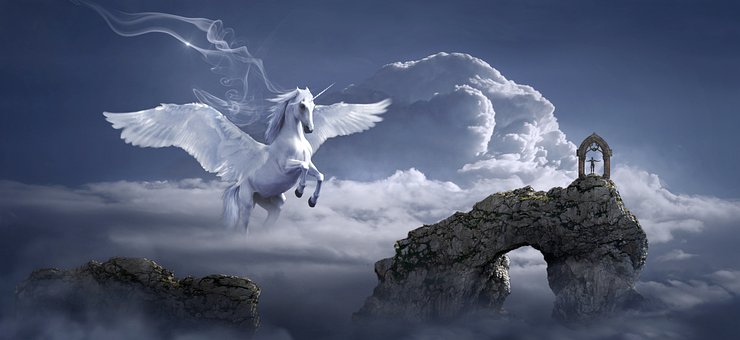At the time of the opening of COP 27, this apocryphal quote from Antoine de Saint-Exupéry has never been so topical in the face of the ecological challenge that stands before us: “We don’t inherit the earth from our parents, we borrow it from our children”. The planet is becoming ever more disrupted, ever faster, biodiversity is in the grip of a sixth mass extinction and “tipping points” climate no return are now threatened. Everyone be warned: if you don’t care about climate change, climate change will care about you. Its heavy consequences will spare no one. Yes, our house is burning, and we are still looking elsewhere.
Our house is burning and we are building air-conditioned stadiums in the deserts of Qatar. Our house is burning and we are still building coal-fired power plants around the world. Our house is burning and we are destroying the “carbon sinks” of the planet, the Amazonian and African forests like the oceans. Our house is burning and we are wasting our resources at a frantic pace, in a consumerist race that no longer makes sense. Our house is burning and no one comes to put out the fire.
The sequel after the ad
However, the art of politics does not consist in chasing after current events, but in anticipating long-term events in order to better control them. Yes, it’s very late, but it’s not too late. Our duty is to try everything today to avoid the worst for the new generations tomorrow. Yes, small gestures are useful, but these will be in vain without big policies!
The right precursor of the ecological fight
Some might reproach our political family for not having overturned the table, but it is nevertheless the only one to have shaken up the lines, from General de Gaulle to Nicolas Sarkozy, via Georges Pompidou and Jacques Chirac: who created the the first Ministry of the Environment, set up the most ambitious civil nuclear programme, introduced the Environmental Charter into the Constitution, had the European “energy-climate” package adopted and supported the Grenelle de l’Environnement?
Former deputy and president of the National Assembly’s sustainable development committee, rapporteur for the Grenelle law on the environment, I can testify that the French right was a forerunner in the ecological fight; I can also deplore that she has since abandoned him.
Leaving this crucial theme to our adversaries is both a moral fault and a political fault, a major strategic error and a terrible historical misinterpretation. In reality, ecology is neither right nor left, because it is above all a science. No offense to those who have pleaded for the closure of nuclear power plants and led to the reopening of coal-fired ones, to those who advocate degrowth and will only get recessions and shortages, to those who saturate the media waves of polemics always most derisory, from the barbecue to inclusive writing, via the Tour de France and Christmas trees!
The sequel after the ad
“We don’t yet know how to talk about it”: the right still struggling on ecology
To succeed in the ecological transition, it is first of all to fight against “greenwashing” and political ecologism, against the artifices of communicators and the chimeras of ideologues. To succeed in the ecological transition is to be part of the Gaullist heritage of the strategic State and national sovereignty; it means preparing for the post-oil era and rebuilding a major energy policy, based on the two pillars of nuclear power and certain renewable energies. Successful ecological transition means reconciling economy and ecology and taking our full place in the next industrial revolution of artificial intelligence, low-carbon technologies and hydrogen; it is to carry the spirit of the Enlightenment which sees in scientific research and technical progress solutions and not threats. Successful ecological transition means getting out of the false dilemma between “end of the month” and “end of the world” and improving the lot of the most modest, because the renovation of energy strainers, the fight against food waste or planned obsolescence are all more purchasing power and less CO2 emissions. Achieving the ecological transition means trusting the actors in the field, elected officials and business leaders, and turning our backs on bureaucracy, because we cannot win any race against time when each public or private ecological project is bogged down in long battles of forms against the administration. Succeeding in the ecological transition means favoring short circuits and repatriating our relocated industries in the face of the globalization of container ships, it means preserving our roots and the beauty of our landscapes.
France must be at the forefront of the transition
This vision of ecology, we began to implement it 20 years ago on our scale in the metropolis of Orléans. We implemented the “Agenda 21” program in 2003. We announced our ambition to make Orléans the first low-carbon city in France. We have set the objective of reducing our energy consumption by 26%, doubling our production of renewable energies and halving our energy emissions of greenhouse gases by 2030. of CO2 emissions from the metropolis of Orléans in France is negligible, just as France represents only 0.9% of the planet’s greenhouse gas emissions. But this is forgetting the driving role that a local authority can play in a country, and the unique place that France holds in the world. Cradle of Human Rights, beacon of peace and international law, here is a new challenge commensurate with the genius and universal vocation of France: to be at the forefront of the ecological transition in the concert of nations, and unite the peoples of the world to tackle together the greatest challenge in human history.

